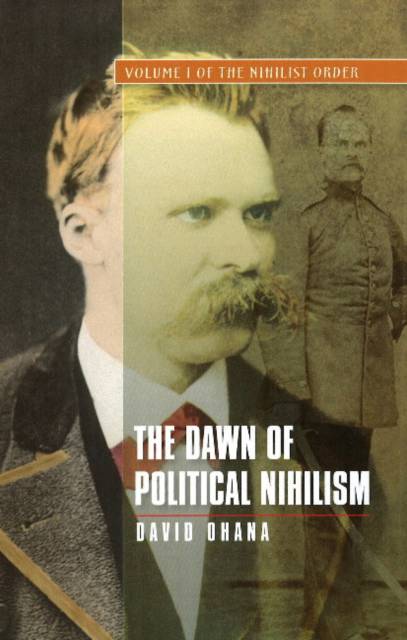
- Afhalen na 1 uur in een winkel met voorraad
- Gratis thuislevering in België vanaf € 30
- Ruim aanbod met 7 miljoen producten
- Afhalen na 1 uur in een winkel met voorraad
- Gratis thuislevering in België vanaf € 30
- Ruim aanbod met 7 miljoen producten
Zoeken
€ 31,45
+ 62 punten
Uitvoering
Omschrijving
In the turbulent period between 1870 and 1930, the contours on modernity were taking shape, especially the connections between technology, politics and aesthetics. The trilogy The Nihilist Order traces the genealogy of the nihilist-totalitarian syndrome. Until now, nihilism and totalitarianism were considered opposites: one an orderless state of affairs, the other a strict regimented order. On closer scrutiny, however, a surprising affinity can be found between these two concepts that dominated the history of the first half of the twentieth century. Starting with Nietzsche's philosophy, this book traces the development of an intellectual school characterised by the paradoxical dual purpose of a wish to destroy, coupled with a strong desire to create imposing structures. This explosive combination of nihilist leanings together with a craving for totalitarianism was an ideal of philosophers, cultural critics, political theorists, engineers, architects and aesthetes long before it materialised in flesh and blood, not only in technology, but also in fascism, Nazism, bolshevism and radical European political movements. Friedrich Nietzsche, Georges Sorel, the Italian Futurists, led by Filippo Tommaso Marinetti, and Ernst Jünger were all well-known intellectual and cultural figures. Here they are seen and understood in a different light, as creators of a modern political mythology that became a source of inspiration for belligerent ideological camps. Among the ideas propagated by this school, and later adopted by totalitarian regimes, were historical nihilism, a revolt against the rationalistic and universalistic pretensions of the Enlightenment, an affirmation of the dynamism of modern life, and the replacement of the traditional Judeo-Christian values of good and evil by other dualities such as authenticity and decadence. Concurrently there took place affirmation of the technological era, the creation of a 'new man' and a violent order, and the birth of a new political style in place of traditional world-views. When channelled into the political sphere, these aesthetic nihilist ideas paved the way for the rise of totalitarianism.
Specificaties
Betrokkenen
- Auteur(s):
- Uitgeverij:
Inhoud
- Aantal bladzijden:
- 221
- Taal:
- Engels
Eigenschappen
- Productcode (EAN):
- 9781845192891
- Verschijningsdatum:
- 4/12/2008
- Uitvoering:
- Hardcover
- Formaat:
- Ongenaaid / garenloos gebonden
- Afmetingen:
- 155 mm x 229 mm
- Gewicht:
- 430 g

Alleen bij Standaard Boekhandel
+ 62 punten op je klantenkaart van Standaard Boekhandel
Beoordelingen
We publiceren alleen reviews die voldoen aan de voorwaarden voor reviews. Bekijk onze voorwaarden voor reviews.











